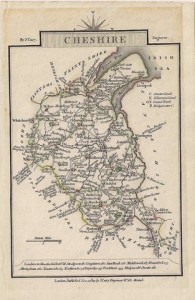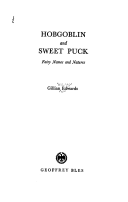Dorothy Rowe (2010) ISBN: 9780007278855
Psychoanalyst Dorothy Rowe is perhaps better known for The Successful Self, but I came to her writings and musing via her discussion of untruths and fibs, Why We Lie. Continue reading
Dorothy Rowe (2010) ISBN: 9780007278855
Psychoanalyst Dorothy Rowe is perhaps better known for The Successful Self, but I came to her writings and musing via her discussion of untruths and fibs, Why We Lie. Continue reading
Dir. Cliff Bole and Les Landau. Perf. Patrick Stewart and Brent Spiner. Paramount Television.
Star Trek‘s blandness, I think, must develop from the fact that it makes it deities out of middle management. For those of us now so anesthetized against passion that we replicate even in our dreams the elements of our pointless middle-management jobs it provides the perfect fantasy. It gives us gods as bland and as bourgeoisie as ourselves who’ve taken those same jobs to the immortal stars. It gives us avatars of Western suburban emptiness who yet seem fulfilled and respected, and never even think about disintegrating themselves in their dress uniforms.
Have a frustrating day at your white-collar job? Never mind. Put the kids to bed. Sit back and watch an episode of Star Trek. Pour yourself a glass of wine. What comfort! Continue reading
THE BROKEN KINGDOMS
N K Jemisin (Orbit, 2010) ISBN 9780316043960
The Broken Kingdoms is the second in N K Jemisin’s Inheritance Trilogy. Set 10 years after the events of The Hundred Thousand Kingdoms, it follows blind artist Oree Shoth as she takes in a silent homeless man and becomes involved in uncovering the cause of serial god-murders. The breakdown of the millenia-old power structures due to the events of the previous book is just beginning to show and the world feels at a turning point.
Coen, Ethan (in “Gates of Eden”; Harper Perennial; Reprint edition, 2008, ISBN 9780061684883)
Ethan Coen’s Destiny makes a glorious spectacle of the modern male. It holds him up, with all his incertitude and humanity, against the older notion of manful men who have stood in battle, consume bourbon with their steaks and know how to throw a punch. In Coen’s protagonist Joey Carmody, like “The Dude” Jeffery Lebowski before him, the reader observes a modern man like himself (or some man she knows) trapped in an older story, fumbling around in Phil Marlow’s footsteps with his modern enlightenment and uncertainty. Continue reading
Poul Anderson ISBN 0-441-80822-0
Three Hearts and Three Lions was published in 1953, well after Tolkien’s The Hobbit but approximately contemporary with The Lord of the Rings. Whether Poul Anderson had read The Hobbit isn’t easy to determine, but it’s safe to say this is a sphere of fantasy sub-creation that lies outside the influence of Tolkien, well outside of The Lord of the Rings, and it could well have founded its own whole genre. In a way, it has, though I’ll come back to that. There are Elves and Goblins, Dwarves and Trolls, but none of them are quite what you expect coming from the modern Tolkien-saturated fantasy landscape. Continue reading
N K Jemisin (Orbit, 2010) ISBN 0316075973
The Hundred Thousand Kingdoms is the first of N K Jemisin’s Inheritance Trilogy. The trilogy is set over several centuries, beginning here with the story of Yeine Darre, the young ruler of a poor and vulnerable region. She is brought to Sky, the glittering capital of the Hundred Thousand Kingdoms, upon being named heir to the Arameri family and thus to world leadership, by her estranged grandfather. The Arameri have become masters of their world because they have as their slaves an assortment of powerful gods, the Enefadeh. Yeine quickly learns she is not the only heir, but has competition in the form of psychopathic Scimina and her brother Relad. Meanwhile Yeine investigates her mother’s murder, aligns with the Enefadeh in their quest for freedom, and struggles to defend her home kingdom from annihilation. She is especially drawn to the most powerful of the Enefadeh, Nahadoth.
Bill Beatty (2007) ISBN 9781921276057
One of the things that sometimes gathers discussion among them who like imaginative fiction is why is it that some places in the world, notably Europe and the Americas are acceptable settings for otherwordly, fantastical or magic realist stories whereas there is a relative dearth of such work with a genuinely antipodean streak to it. Continue reading
Emma Jones ISBN: 978 0 571 24538 3
For myself, I first discovered Australian poet Emma Jones last year in a Dublin bookshop, lonely and heartsick, rooting through the bargain shelf for something modestly priced that would change my life. The other book I bought that day was the happily titled When things fall apart. Continue reading
Orhan Pamuk (trans. Maureen Freely)
Faber and Faber (2004) ISBN 978-0-571-25823-9
Of Orhan Pamuk’s many gifts as a Nobel-awarded writer, one of the most fascinating is his ability to blur the lines between real life and fiction. Though the people he creates in his novels can speak and behave in ways that are surreal, in the context of his writing they are believable. This is a gift he shares with Haruki Murakami, a writer with whom I am more familiar, though the style and themes of Pamuk’s work is very different to Murakami’s. To qualify this observation I must add that I have thus far read only two and a half of Pamuk’s novels–The Museum of Innocence, which I didn’t particularly like; My Name is Red, which I promise I will one day finish; and Snow, which I review here. As in The Museum of Innocence, Pamuk is himself a character in Snow, which contributes to a feeling that the story, despite its surreal moments, might be true.
This edition of Snow was published as part of Faber and Faber’s ‘Revolutionary Fiction’ series, described as “celebrating provocative political fiction from around the world”. It centres upon the Turkish headscarf controversy, with which I have only passing familiarity, and the suicides of young women who have refused to remove their scarves and thus been banned by the Turkish secular state from attending school. A spate of such suicides occurred in the south-eastern city of Batman, but in the novel they occurred rather in the city of Kars, close to the Armenian border. “Kar” is the Turkish word for “snow”. This is played upon also in the name of the novel’s chief character, Ka.
 One of my little background hobbies has been the compiling of a book on fairies for some years now. It’s a dictionary, perhaps a bit like K.M. Brigg’s dictionary but more etymological and I’m much more inclined to put in scarecrow and lubber and slovenly names like Bugahag and Slubber-de-Gullion and Trolly-Mog that are possibly lost fairy names preserved as insults or slang. At any rate, while hunting for information on Asrai I discovered an anonymous page of folklore over at mondrem.net. Continue reading
One of my little background hobbies has been the compiling of a book on fairies for some years now. It’s a dictionary, perhaps a bit like K.M. Brigg’s dictionary but more etymological and I’m much more inclined to put in scarecrow and lubber and slovenly names like Bugahag and Slubber-de-Gullion and Trolly-Mog that are possibly lost fairy names preserved as insults or slang. At any rate, while hunting for information on Asrai I discovered an anonymous page of folklore over at mondrem.net. Continue reading
Mark Reads/Mark Watches (markdoesstuff.com)
I recommend review blog Mark Does Stuff to almost everyone I know, sooner or later. So, while reviewing a review blog might seem unorthodox, I would like to recommend him here, too. Blogger Mark Oshiro is, from all appearances, a warm-hearted and engaged person. I have been following him since his first foray into total-book reviews, Mark Reads Twilight, some years ago. This project, and all projects since, start with his near-complete lack of knowledge of the subject matter. There have been some surprising gaps in his pop-culture knowledge, many of them made understandable by aspects of his upbringing which he relates in several reviews. It has been a delight to watch his style and personality develop over time.
Though it doesn’t likely mean much in this era of fan-involvement, I was inordinately pleased when Mark Oshiro added me back as a friend on facebook. Being shy and socially awkward, I have since made no effort to contact him. He has speculated about a possible journey to Australia next year. To demonstrate my affection I almost offered him transport across Melbourne before managing to restrain myself until he threw out the question*. Yes, a virtual internet stranger. He has that effect on people. Or perhaps it’s just me.
 HOBGOBLIN AND SWEET PUCK: FAIRY NAMES AND NATURES
HOBGOBLIN AND SWEET PUCK: FAIRY NAMES AND NATURES
Gillian Edwards (1974) ISBN: 0713807105
Hobgoblin and Sweet Puck is one of those books that I’ve picked up a couple times in libraries but just managed somehow to read the wrong passages, then put it down again with an odd feeling that I ought to want to read it, but didn’t in particular. Continue reading